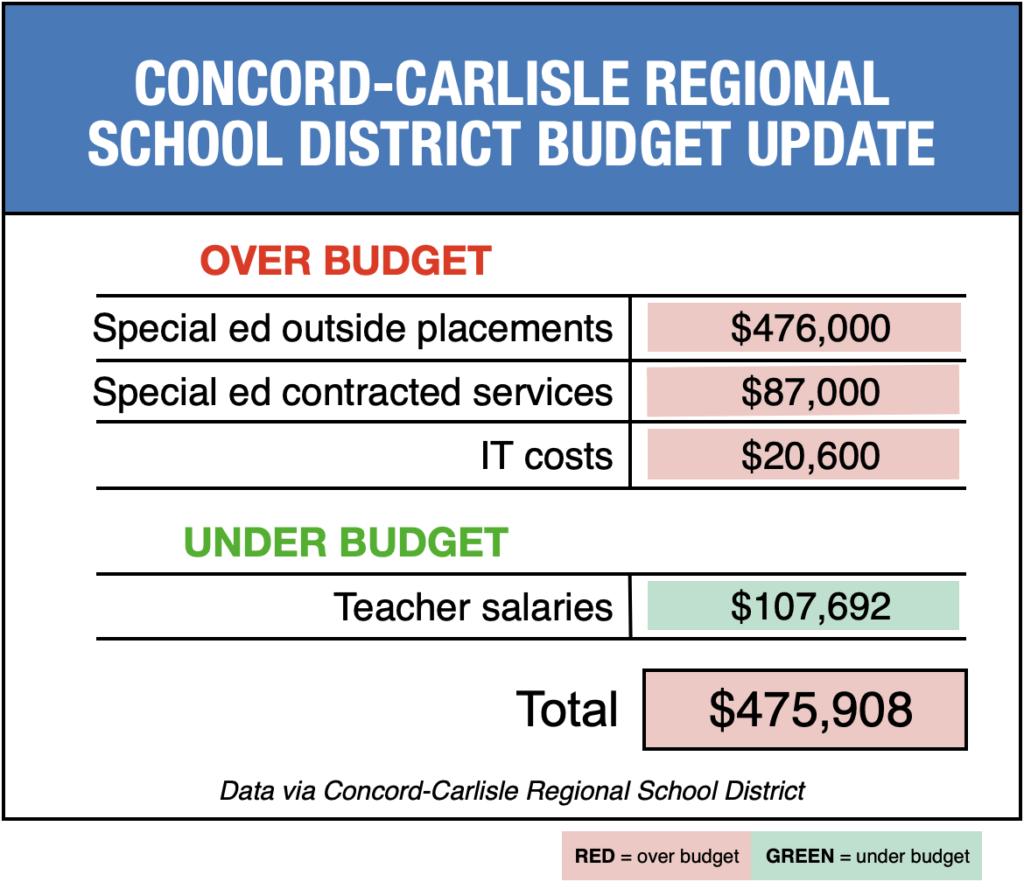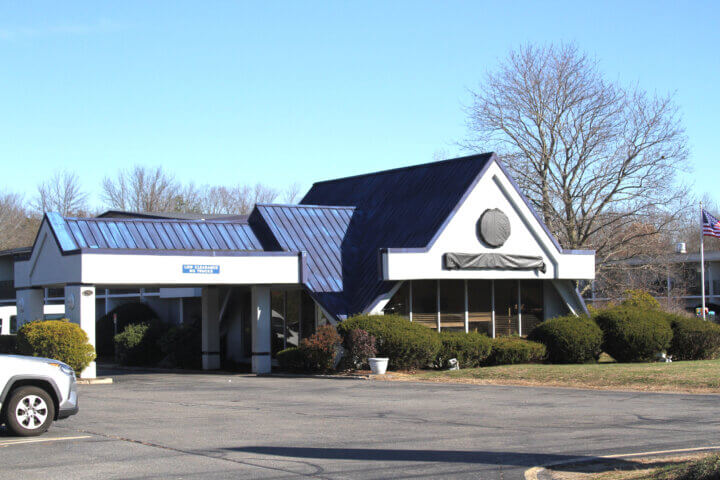By Christine M. Quirk — Christine@concordbridge.org
Two months into the new fiscal year, the regional school budget is already running almost $476,000 in the red, Assistant Superintendent of Finance and Operations Robert Conry told the School Committee.
The Concord district, encompassing the elementary and middle schools, faces a $363,000 deficit in often-problematic line items: out-of-district special education tuitions, IT updates, and a $61,000 annual fee for the METCO special education van, a contracted service.

Courtesy photo
“This isn’t new,” Superintendent Laurie Hunter said at the September 17 meeting. “This is a condition we found ourselves in last spring, which is why we froze the budget.”
Since 2018, Hunter said, the school department has built its budgets using a zero-based process.
This process begins at zero, and every line item is added based on the projected need to get to the final figure.
The Finance Committee establishes a budget guideline for the town manager and school committees each year. Hunter said this zero-based model is how the schools get as close to the guideline as they do.
Last year, the regional school budget was about $120,000 more than the FinCom recommendation, leading to a long discussion at Town Meeting before its ultimate passage.
“The guideline doesn’t cover COLA [cost of living adjustment], so we’re always starting in the negative,” she said. “It doesn’t cover contractual raises. We’re trying to find money before we even start.”

An early update
Though the committee is usually updated quarterly, Conry believed it was important to inform members sooner.
“Between the December presentation and now, we have identified some different things that are creating pressure on the budget,” Conry said. “The idea is to have no surprises and to let you know what we’ve discovered.”
Conry cited an unforeseen IT cost as part of the issue.
“You recall the cyber incident we had,” he said, referring to a May ransomware attack. “We updated our protections to more threat assessment and detection.”
Most of the discrepancy, however, comes from special education costs.
“Tuition is driven by four additional placements beyond what we budgeted,” Conry said. “We are projecting $476,000 in pressures that we have, [which is] a cumulative deficit that we have to look to offset.”
Conry pointed out these numbers do not include the circuit breaker funds, the state program that reimburses some high-cost special education services.
Conry cautioned that Concord might be reimbursed at a lower rate depending on the needs of other districts.
“Until we see the number from them, we can’t plan,” he said. “I am hopeful that will offset a portion of this, and then we’ll have to look at the rest.”
Potential fluctuations
On a more positive budget note, Conry and Hunter said the district has replaced retiring teachers with those lower on the negotiated pay scale, resulting in a savings.
Conry cautioned that these numbers could change in either direction. “We could have another out-of-district placement, or the contract needs of a special education student can change,” he said.
The district also offers tuition-based special education programs for non-residents: Pathways, which includes academic (general education and skills-based remediation); social and vocational programs; and Launch, which helps students transition from school to careers and living on their own.
Currently, Hunter said, four students are in the Pathways program.
Planning for FY26
Some special education costs, Hunter said, will roll forward as the committee begins to build the budget for FY26.
“I guess FinCom is listening here; we’re starting the year with some of these big numbers already over what we had already budgeted for this year, so it’s got to be part of the guideline discussion that we’ve had some unexpected special needs costs,” Hunter said.
This, Hunter said, is a result of the zero budget process.
“This is the risk we take,” Hunter said. “We haven’t left any room, except for the circuit breaker, to manage unknowns. Is this how we want to operate?”






